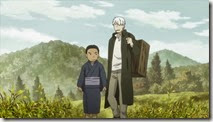 |
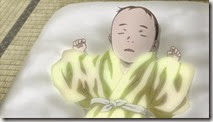 |
 |
I can’t really add a whole lot to that.
Mushishi really is quite unlike any other anime out there, probably ever. There just isn’t another series that sets about achieving what this one does – it isn’t only a question of execution, but intent. It almost seems as if Mushishi should be classified as a genre, like “Slice of Life” or “RomCom” – except, of course, it would be a genre of one (or low single-digits, at the very least). As someone once said of Michael Jordan, he may not be in a class by himself, but it sure doesn’t take long to call the roll.
There’s a beautiful symmetry to this series in the way its themes match up to its style. It’s so fitting that mushi are the fundamental building blocks of life, because with rare exceptions the focus of Mushishi is on the most elemental of human emotions. Our most primal shared fears, our most innate desires, and the things we feel most naturally and deeply. It achieves profundity by stripping away all that’s non-essential, leaving us with a story that’s made up almost entirely of the essential truth that’s left over.
On that note, one could hardly come up with a more elemental human emotion than the love of a mother for her child, and vice-versa. In a sense “Thread of Light” is covering some of the same thematic ground as last week’s “The Hidden Cove” – the desire to be with a person we love even when we’re forced to be far apart physically, and the seeming miracles that love can perform (with the help of mushi – which also extract a price). But for me this is the far more powerful episode, and the themes work much better here. As is usually the case with Mushishi it’s told in quiet and restrained fashion, letting the emotion of the moment speak for itself.
At the center of the episode is Gen (Kanazawa Rin, in yet another fine child seiyuu performance for this series) a rambunctious boy of ten or so who’s also unnaturally strong for his age. His mother is absent, which prompts cruel teasing from the other village children and generally results in fights Gen wins. There are clearly things about his mother’s absence that his father (Hamazoe Shinya) isn’t telling Gen, and there are things Gen doesn’t tell his father too – like the fact that he can see a mysterious robe of shimmering colors among his mother’s possessions. When Gen tells his father about the things he sees that he’s not supposed to see, his father gets angry, so Gen does what any clever boy would do and keeps it to himself.
When Gen happens upon Ginko at the side of the road, my reaction is “thank goodness” – this was a sad and potentially tragic situation that cried out for his involvement. Turns out that Ginko is already very much involved, because it was he who saved Gen’s life when he was a baby by placing that robe – which his mother had woven out of threads only she could see, and only since her difficult childbirth left her “reborn” – on the weak and frail baby. The threads, as it turns out, are Ether – the vitality of life which infants need to survive. But in placing the robe on Gen, Ginko was a little too successful – leading to the unruly and overstrong child we now see. As for his mother Yui (Subaru Togo) she’s now an empty shell, silent and unmoving for two years.
These are threads (pun intended) that we’ve seen in Mushishi many times – the mushi that give humans a gift, but one that’s a double-edged sword. The power of love. But rarely are they spun so powerfully as they are here, the tapestry being the bond between a mother and her son. As with “The Hidden Cove” we see a human unknowingly relying on a mushi to reach out to their loved one despite the curse of distance and the unwise decisions of a well-meaning father being part of the problem. It’s a beautiful imagery – Yui’s love is so strong that she leaves her body and becomes an “Angel” that only Gen can see, watching over him and marveling at his vitality (which she gave to him through the robe she wove).
There’s another element here, too, and that’s the fundamental dichotomy of the nature of boyhood. We want boys to be strong and spirited (this is the basis behind the Japanese “Boys Day” festival), yet they’re often scolded and punished for their spirited nature (we can see this in the likes of Usagi Drop’s Kouki – whose name is ironic in this context – often berated and belittled by his teachers for the crime of being a boy). Yet Gen’s mother sees only the vitality and the spirit – her vision is powered by a mother’s love, and she accepts Gen and loves him for what he is, even if she’s unable to tell him so directly. When Ginko asks Gen if he wants to keep the ability to see what he sees, the boy affirms that he does – and indeed, he retains that ability even after Ginko’s intervention. This is a commentary by Urushibara-sensei, I think, a statement that boys don’t need to be “cured” of being boys – they need to be understood and treated with patience.
All in all I rank “Thread of Light” as one of the very best chapters in the Mushishi saga, among the most elegant and emotionally pure (and that’s a high bar). And it’s also one of the last, as the anime finally moves into the final stages of its comprehensive adaptation of the manga. Mushishi’s gift for emotional clarity and lack of artifice is a gift to anime viewers, and when it does finish its run (Artland’s production process willing) its absence is going to leave a gap I’m confident no other series will be able to fill.
 |
 |
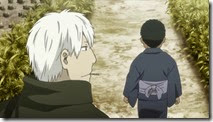 |
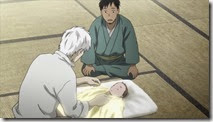 |
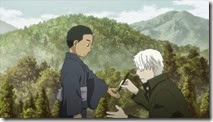 |
 |
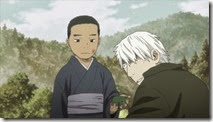 |
 |
 |
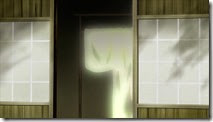 |
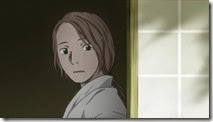 |
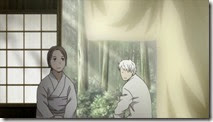 |
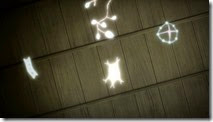 |
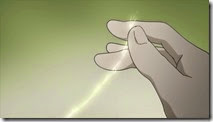 |
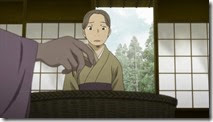 |
 |
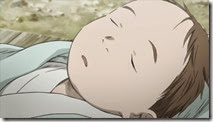 |
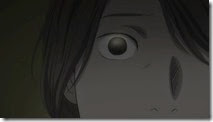 |
 |
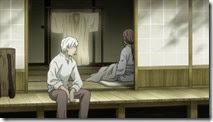 |
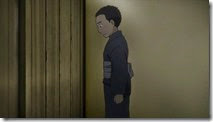 |
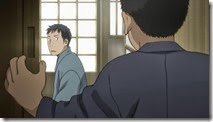 |
 |
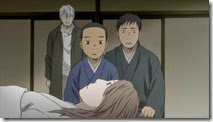 |
 |
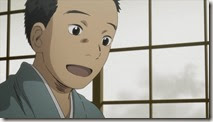 |
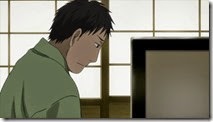 |
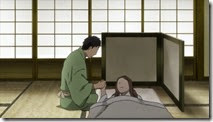 |
 |
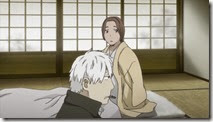 |
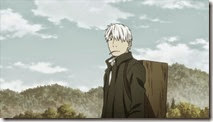 |
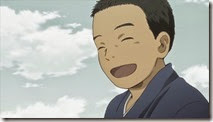 |
 |
End Card:
 |


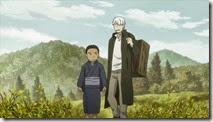
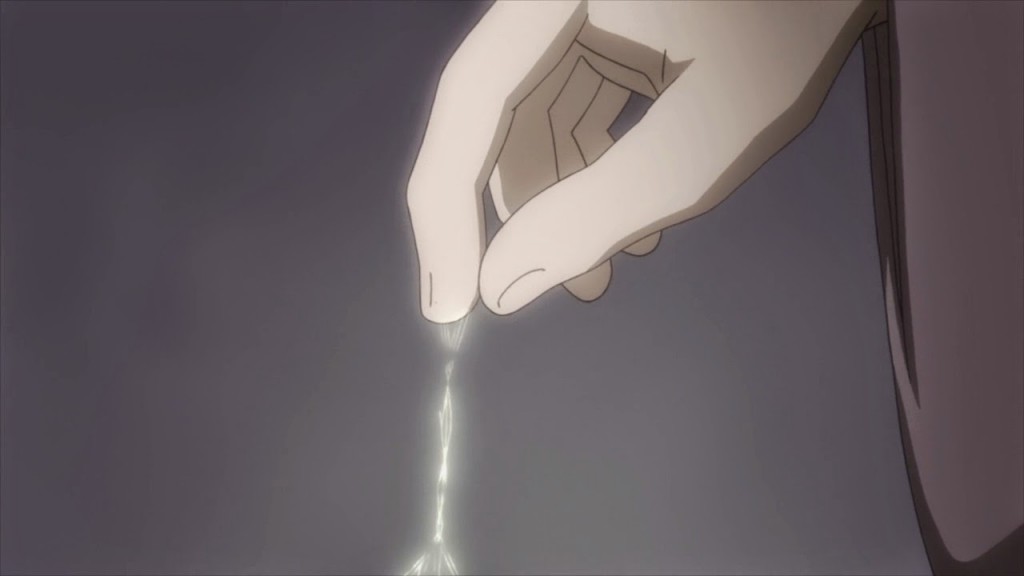
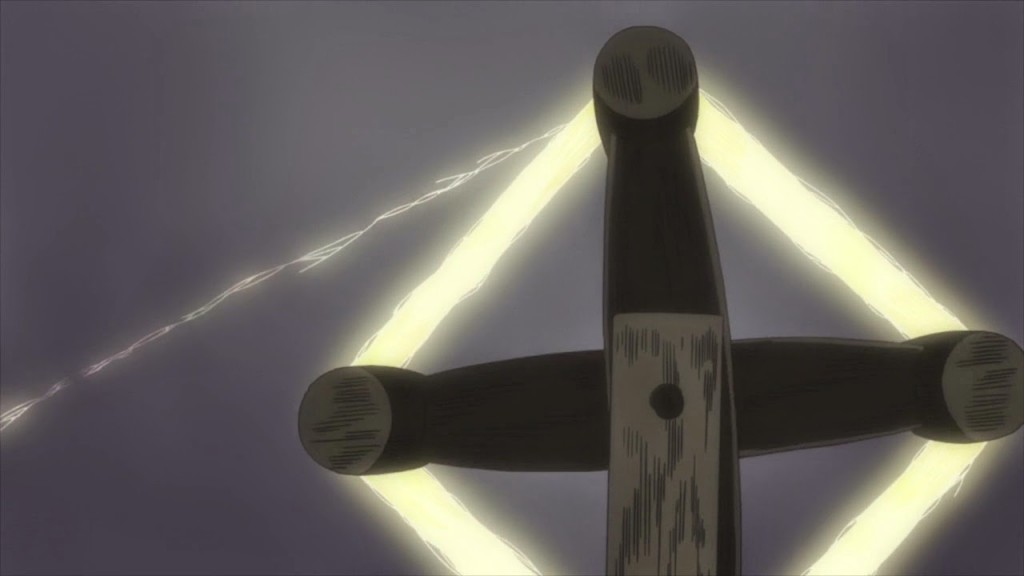
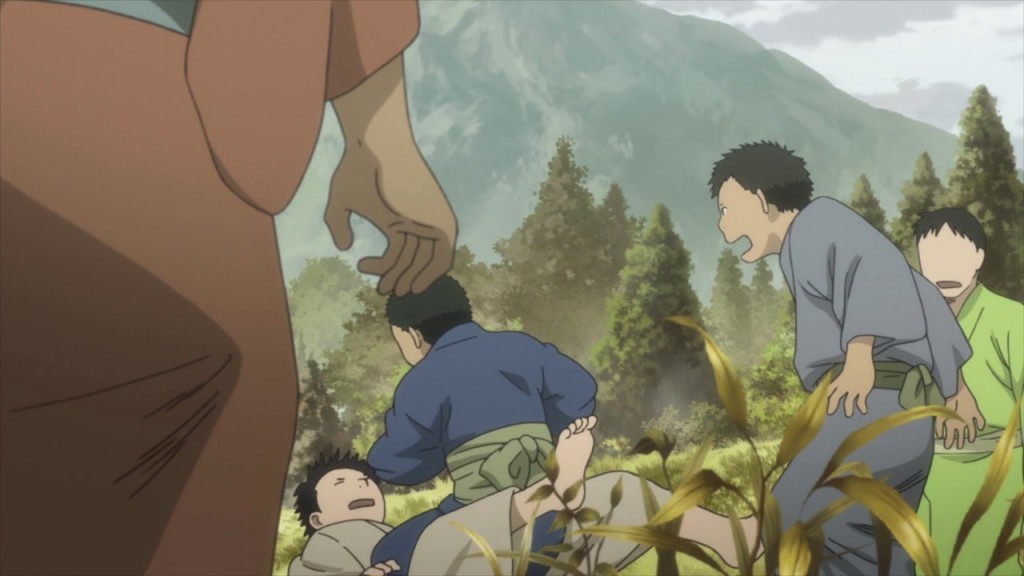
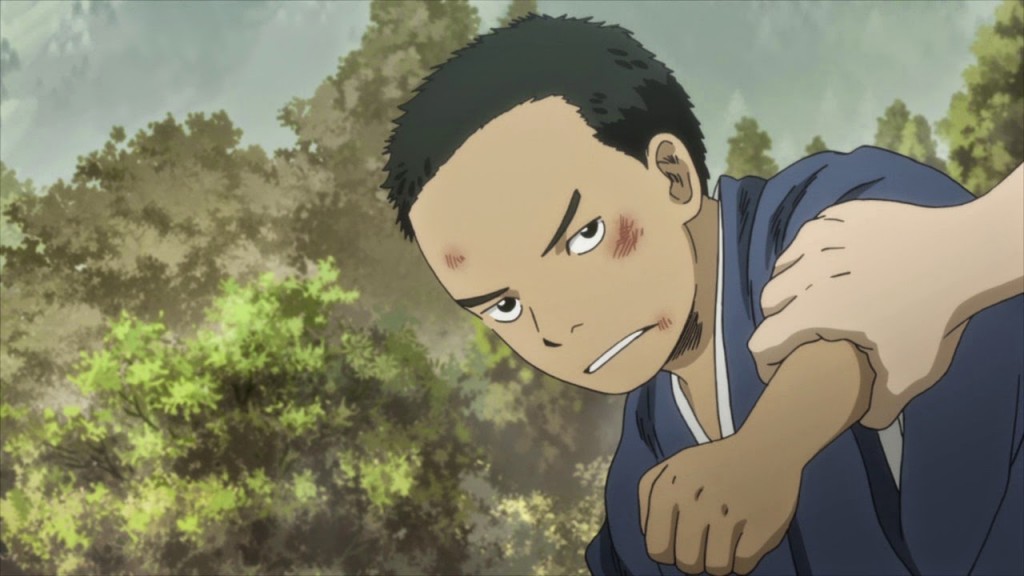
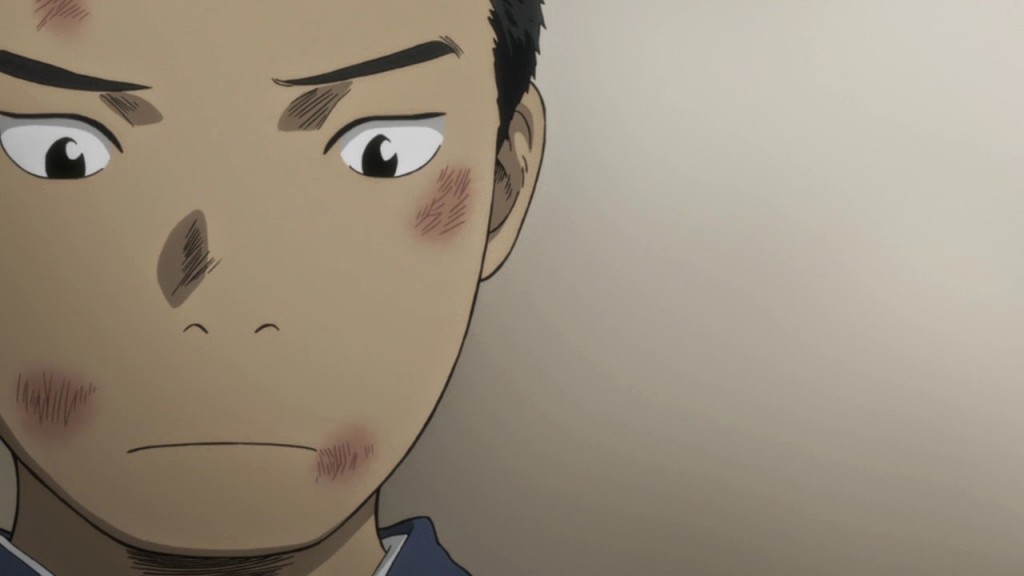
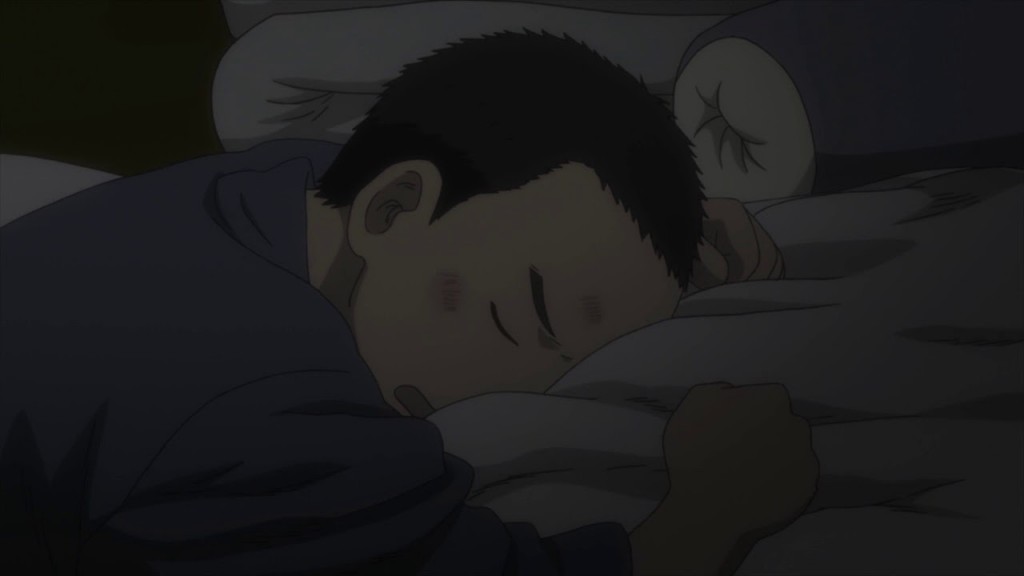
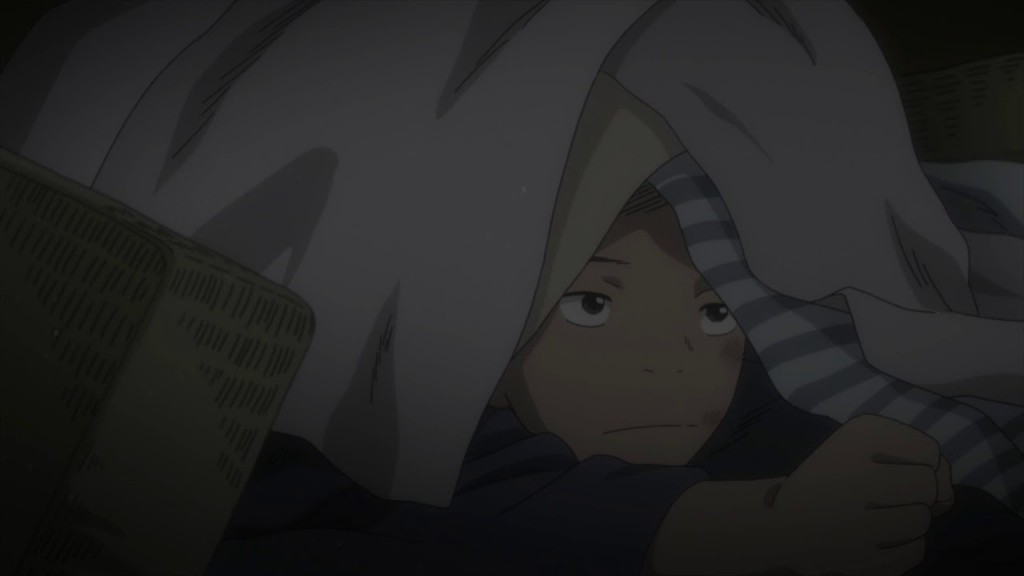
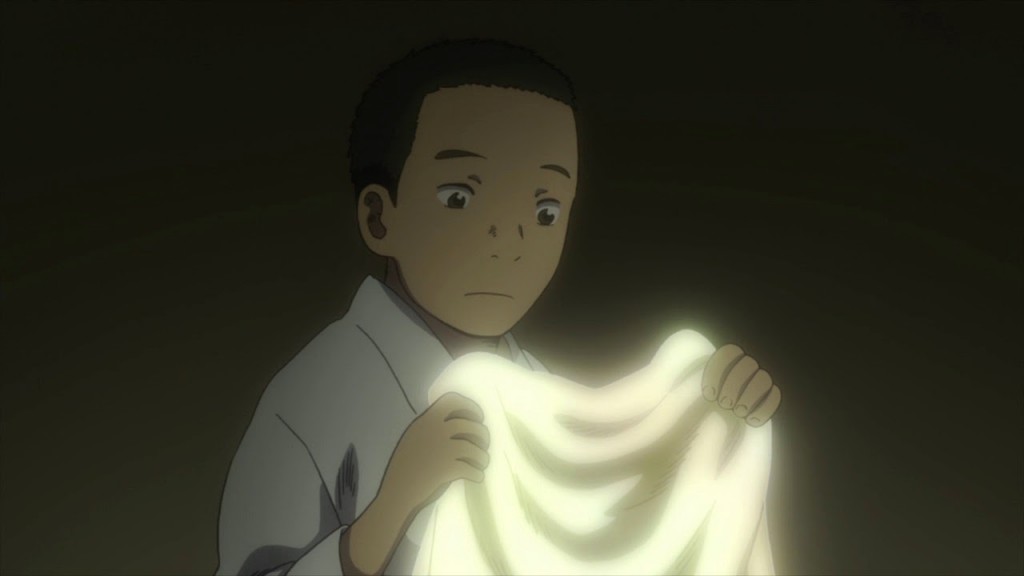


Rita
November 16, 2014 at 6:26 amEvery single week, I dread the end of Mushishi a little bit more, if only because I'm afraid I may never get the chance to watch another anime quite like it, given the direction current day anime seems to be heading towards. But I'll be damned if I won't enjoy every moment I have with it while it's here.
vincee87
November 16, 2014 at 5:11 pmI'm a little confused over one small detail. How come Mom just got better like that? Was it because Gen was allowed to visit her in person so she no longer had to watch over him in "angel" form?
admin
November 17, 2014 at 12:30 amI think that's what we're supposed to take from it, yes. Or maybe he's so overflowing in Ether that some of it touches her in an ambient way when he visits her and helps her revive.